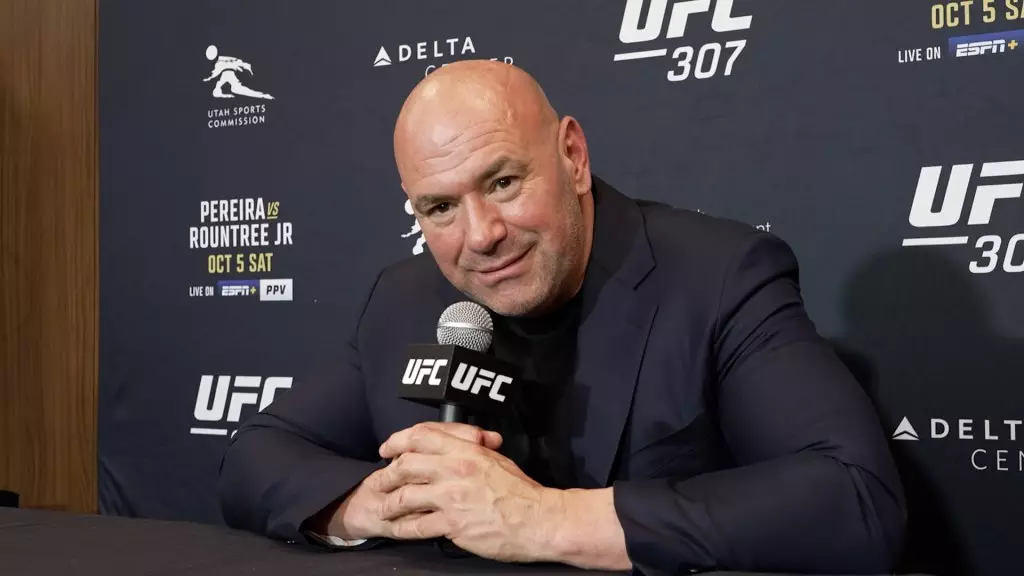The UFC 307 event, held in Salt Lake City, has ignited a fervent discussion regarding the standards of judging in mixed martial arts. Following a night that left fans baffled by the scorecards, UFC President Dana White voiced his discontent. In a candid post-fight interview, White declared, “The judging tonight was atrocious,” likening the experience to attending a less-than-stellar boxing match. This palpable frustration underscores a growing sentiment within the MMA community concerning the inconsistency of judges and the significant impact it has on fighters’ careers.
The controversy raises important questions about the criteria used by judges when scoring bouts. Many fans and analysts alike wonder how fighters can effectively demonstrate their skills when faced with subjective interpretations that can sway an entire match outcome.
Beyond judging, UFC 307 brought to light various regulatory issues that sparked heated conversations within the sport. White remarked on the refereeing style of local official Dave Seljestad, whom he felt did not effectively manage combatants’ actions within the octagon. This sentiment was echoed by Marc Ratner, the UFC’s senior vice president of regulatory affairs, who expressed his own dissatisfaction about specific officiating incidents during the bout between Cesar Almeida and Ihor Potieria. These criticisms illuminate the ongoing need for enhanced training and clearer guidelines for referees to ensure that fighters are held to a standard that allows for fair competition.
Moreover, the bout involving veteran fighter Jose Aldo and rising star Mario Bautista has also come under scrutiny. Fans noted that Aldo faced significant difficulty in overcoming Bautista’s grappling strategy, which led to instances of excessive stalling. This prompted Conor McGregor, Aldo’s former rival, to take to social media suggesting the introduction of a match clock to limit periods of inactivity. Such a proposal, however, ignites further debate about the suitability of adding stricter regulations versus allowing referees more autonomy in their decision-making.
The conversation surrounding stalling tactics in fights is not new; however, it reached a critical mass following UFC 307. White acknowledged the need for an adjustment in protocols to encourage heightened activity in the cage without endorsing the idea of a fixed clock. He emphasized, “I always think that the referees should be more active on that, 100 percent, especially when somebody keeps doing it to stall.” This statement reflects a desire for a more proactive approach to officiating—an acknowledgment that fighters should engage rather than lean towards fence-holding tactics.
The core of this conversation is about maintaining the integrity of the sport. When athletes step into the octagon, they deserve the opportunity to showcase their abilities, but the current judging and officiating landscape sometimes obstructs this fundamental objective. In the wake of UFC 307, it’s clear that the UFC must reevaluate its standards and practices to ensure that the sport continues to thrive under fair and consistent conditions. As this discussion evolves, both fans and athletes are waiting to see how the UFC will respond to these pressing issues in the future.

